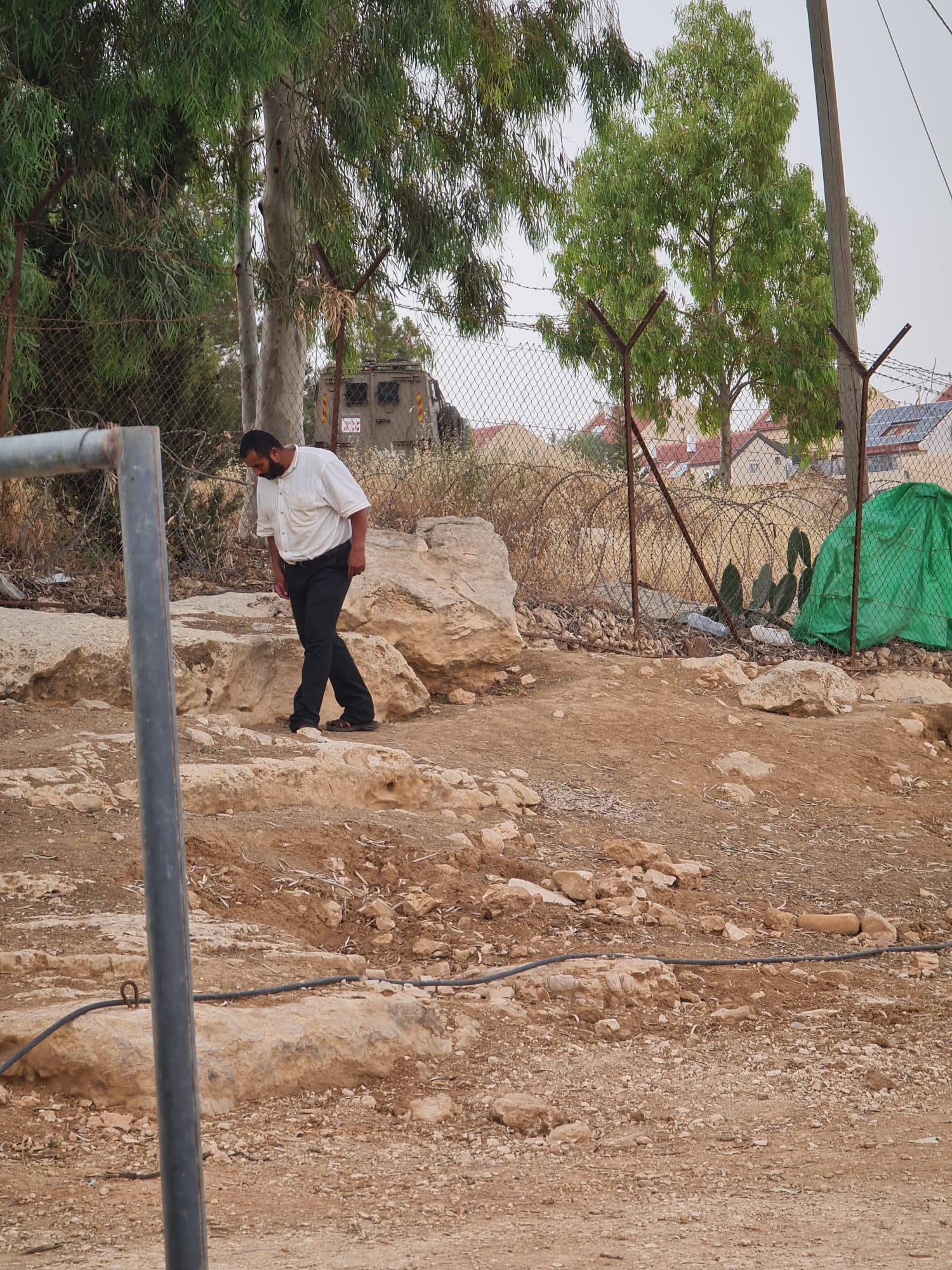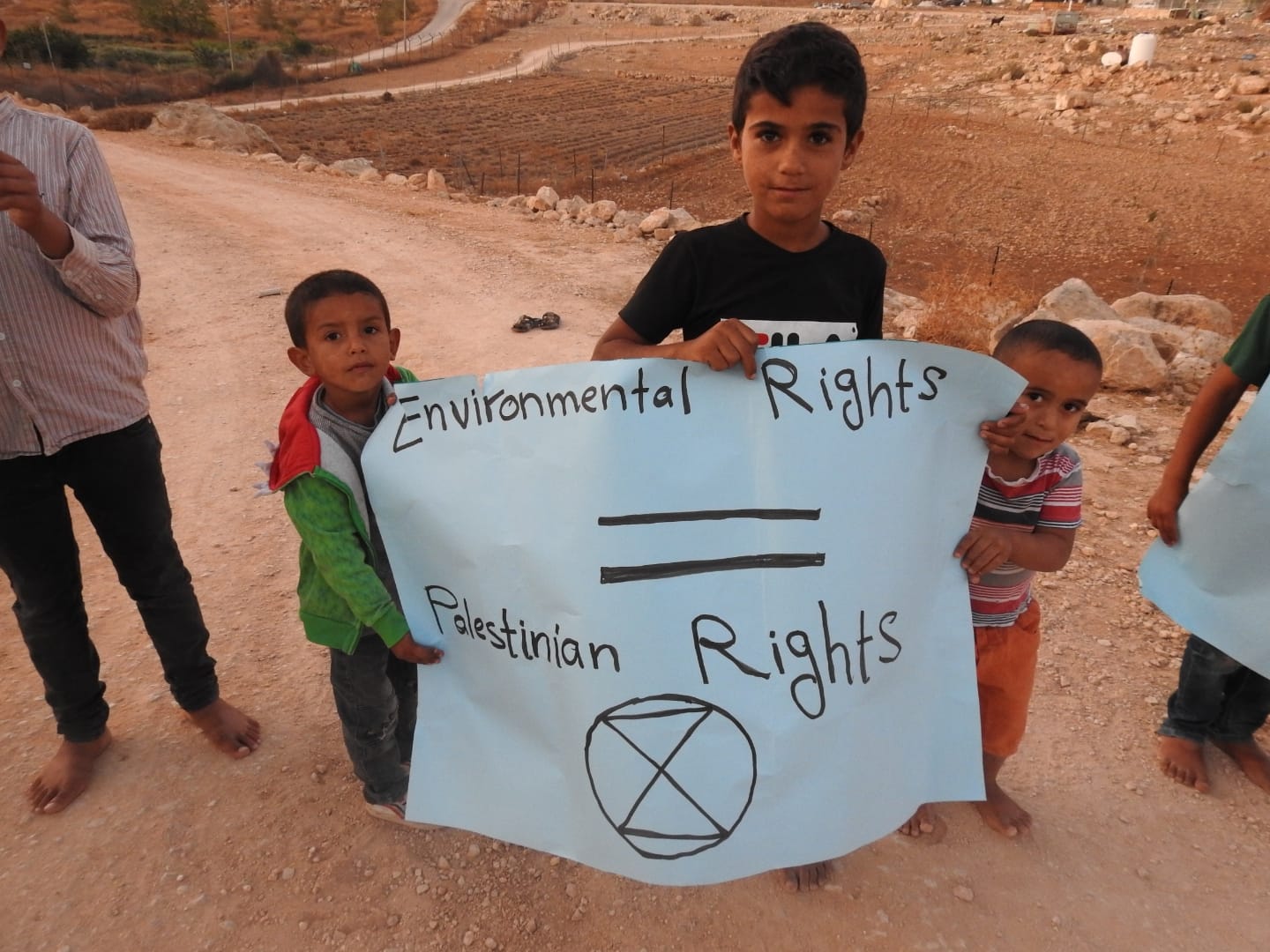Tag: umm al-khair
-
Revenge attacks in Masafer Yatta
16 October, 2023 | International Solidarity Movement | Masafer Yatta In the week since Israel began its onslaught on Gaza, soldiers and settlers have bulldozed homes, carried out night raids and attacked Palestinians across the Masafer Yatta region. Occupation forces have taken advantage of the state of emergency to escalate their violence and displacement…
-
Bedouin kids join global climate strike in Palestine’s first Extinction Rebellion protest
19th October | International Solidarity Movement | Umm al-Khair, South Hebron Hill Bedouin children in the West Bank joined global climate protests yesterday, calling out the Israeli occupation’s role in exacerbating the effects of climate change on Palestinians. Over a dozen protesters from the Bedouin village of Umm al-Khair in the South Hebron Hills, waved…


